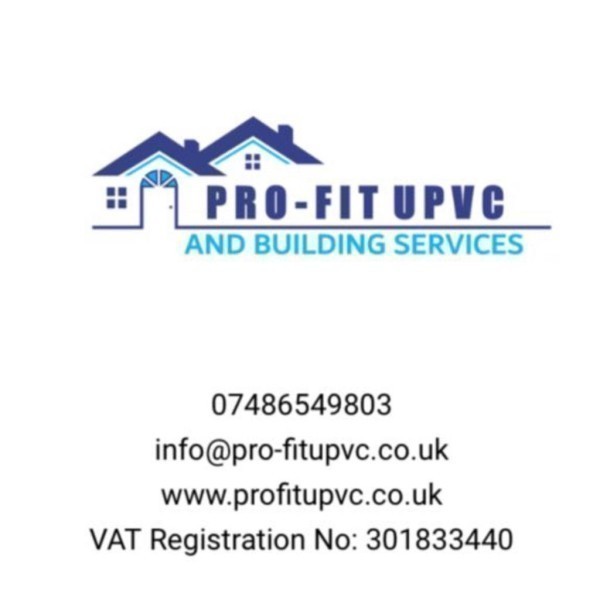Loft Conversions in Blackpool
Filter your search
Post your job FREE and let trades come to you
Save time by filling out our simple job post form today and your job will be sent to trades in your area so you can sit back, relax and wait for available trades to contact you.
Post your job FREESearch Loft Conversions in places nearby
- Loft Conversions in Accrington
- Loft Conversions in Adlington
- Loft Conversions in Bacup
- Loft Conversions in Bamber Bridge
- Loft Conversions in Barnoldswick
- Loft Conversions in Barrowford
- Loft Conversions in Blackburn
- Loft Conversions in Brierfield
- Loft Conversions in Burnley
- Loft Conversions in Carnforth
- Loft Conversions in Chorley
- Loft Conversions in Church
- Loft Conversions in Clayton-Le-Moors
- Loft Conversions in Cleveleys
- Loft Conversions in Clitheroe
- Loft Conversions in Colne
- Loft Conversions in Darwen
- Loft Conversions in Earby
- Loft Conversions in Fleetwood
- Loft Conversions in Freckleton
- Loft Conversions in Fulwood
- Loft Conversions in Great Harwood
- Loft Conversions in Haslingden
- Loft Conversions in Heysham
- Loft Conversions in Kirkham
- Loft Conversions in Lancaster
- Loft Conversions in Leyland
- Loft Conversions in Longridge
- Loft Conversions in Lytham St Anne's
- Loft Conversions in Morecambe
- Loft Conversions in Nelson
- Loft Conversions in Ormskirk
- Loft Conversions in Oswaldtwistle
- Loft Conversions in Padiham
- Loft Conversions in Poulton-Le-Fylde
- Loft Conversions in Preston
- Loft Conversions in Rawtenstall
- Loft Conversions in Rishton
- Loft Conversions in Skelmersdale
- Loft Conversions in Thornton
- Loft Conversions in Trawden
- Loft Conversions in Whitworth
Understanding Loft Conversions in Blackpool
Loft conversions in Blackpool have become increasingly popular as homeowners seek to maximise their living space without the hassle of moving. This article explores the ins and outs of loft conversions, offering insights into the benefits, types, planning permissions, and costs involved. Whether you're considering a loft conversion for additional bedrooms, a home office, or a playroom, this guide will provide you with the essential information needed to make an informed decision.
The Benefits of Loft Conversions
Loft conversions offer a myriad of benefits, making them an attractive option for homeowners in Blackpool. Firstly, they provide additional living space, which can be used for various purposes, such as a guest room, study, or even a gym. This extra space can significantly enhance the functionality of your home.
Moreover, a well-executed loft conversion can increase the value of your property. In a competitive housing market, having an additional room can make your home more appealing to potential buyers. It's a smart investment that often yields a high return.
Another advantage is that loft conversions are generally less disruptive than other types of home extensions. Since the work is confined to the roof area, it minimises the impact on your daily life. Plus, it usually doesn't require sacrificing garden space, which is a common concern with ground-level extensions.
Types of Loft Conversions
There are several types of loft conversions to consider, each with its own set of advantages and considerations. The most common types include:
- Dormer Loft Conversion: This is the most popular type, involving an extension to the existing roof, creating additional floor space and headroom. Dormers are versatile and can be added to various property styles.
- Mansard Loft Conversion: Typically found in urban areas, this type involves altering the roof structure to create a flat roof with a back wall sloping inwards. Mansards offer a significant amount of space but require more extensive construction work.
- Hip-to-Gable Loft Conversion: Ideal for semi-detached or detached houses with a hipped roof, this conversion extends the sloping side of the roof to create a vertical wall, increasing the internal space.
- Velux Loft Conversion: Also known as a roof light conversion, this is the simplest and most cost-effective option. It involves installing Velux windows into the existing roofline, without altering the roof structure.
Planning Permission and Building Regulations
Before embarking on a loft conversion in Blackpool, it's crucial to understand the planning permission and building regulations involved. In many cases, loft conversions fall under permitted development rights, meaning you won't need planning permission. However, there are exceptions, particularly if your property is in a conservation area or if the conversion significantly alters the roof structure.
Building regulations approval is mandatory for all loft conversions. These regulations ensure that the conversion is structurally sound and safe. Key aspects covered include fire safety, insulation, and access. It's advisable to consult with a professional architect or builder to ensure compliance with all relevant regulations.
Cost Considerations
The cost of a loft conversion in Blackpool can vary widely depending on the type of conversion, the size of the space, and the quality of materials used. On average, you can expect to pay between £20,000 and £50,000. Dormer conversions tend to be more expensive due to the additional structural work involved, while Velux conversions are generally more affordable.
It's important to budget for additional costs such as architectural fees, planning applications, and building regulation approvals. Obtaining multiple quotes from reputable builders can help you get a better idea of the overall cost and ensure you receive a fair price.
Choosing the Right Contractor
Selecting the right contractor is crucial to the success of your loft conversion project. Look for builders with experience in loft conversions and check their credentials and references. A reputable contractor will provide a detailed quote and timeline for the project, ensuring transparency and accountability.
It's also beneficial to view previous work completed by the contractor to assess the quality of their craftsmanship. Don't hesitate to ask for recommendations from friends or family who have undertaken similar projects.
Designing Your Loft Space
Designing your loft space is an exciting part of the conversion process. Consider how you intend to use the space and what features are most important to you. For instance, if you're creating a bedroom, you'll need to think about storage solutions and lighting. If it's a home office, consider the layout and connectivity options.
Working with an architect or interior designer can help you make the most of the available space and ensure the design aligns with your vision. They can provide valuable insights into optimising natural light, choosing suitable materials, and creating a cohesive aesthetic.
Maximising Natural Light
Natural light can transform a loft space, making it feel more open and inviting. Consider installing large windows or skylights to maximise the amount of light entering the room. Velux windows are a popular choice for loft conversions, offering excellent insulation and energy efficiency.
Mirrors can also be strategically placed to reflect light and create the illusion of a larger space. Light-coloured walls and furnishings can further enhance the brightness of the room.
Insulation and Energy Efficiency
Proper insulation is essential for maintaining a comfortable temperature in your loft space and reducing energy costs. Insulating the roof, walls, and floors will help keep the space warm in winter and cool in summer.
Consider using eco-friendly insulation materials, such as sheep's wool or recycled cellulose, which offer excellent thermal performance and sustainability. Additionally, energy-efficient windows and doors can further enhance the energy efficiency of your loft conversion.
Ensuring Adequate Ventilation
Good ventilation is crucial in a loft conversion to prevent condensation and maintain air quality. Ensure that windows can be opened to allow fresh air to circulate. Mechanical ventilation systems, such as extractor fans, can also be installed to improve airflow.
It's important to consider the placement of ventilation systems during the design phase to ensure they are both effective and unobtrusive.
Addressing Structural Considerations
Structural considerations are a key aspect of any loft conversion. The existing roof structure must be assessed to determine if it can support the additional weight of the conversion. Reinforcements may be necessary to ensure the structural integrity of the building.
Working with a structural engineer can help identify any potential issues and ensure that the conversion is safe and compliant with building regulations.
Incorporating Storage Solutions
Storage is often a challenge in loft conversions due to the sloping rooflines. However, with clever design, you can create ample storage space. Consider built-in wardrobes, shelving, and under-eaves storage to make the most of the available space.
Custom furniture can also be designed to fit the unique dimensions of the loft, providing both functionality and style.
Creating a Multi-Functional Space
Loft conversions offer the opportunity to create a multi-functional space that can adapt to your changing needs. Consider incorporating flexible furniture and design elements that allow the space to be used for different purposes.
For example, a fold-out sofa bed can transform a home office into a guest room, while modular shelving can be reconfigured to suit different storage needs.
Enhancing Privacy and Soundproofing
Privacy and soundproofing are important considerations, especially if the loft conversion is intended for use as a bedroom or home office. Installing soundproofing materials in the walls and floors can help reduce noise from other parts of the house.
Consider using frosted glass or blinds for windows to enhance privacy without sacrificing natural light.
Frequently Asked Questions
- Do I need planning permission for a loft conversion in Blackpool? In many cases, loft conversions fall under permitted development rights, but it's important to check with your local council, especially if your property is in a conservation area.
- How long does a loft conversion take? The duration of a loft conversion can vary, but most projects take between 6 to 8 weeks to complete.
- Can all lofts be converted? Not all lofts are suitable for conversion. Factors such as roof height, pitch, and structural integrity must be assessed to determine feasibility.
- What is the average cost of a loft conversion in Blackpool? Costs can vary, but you can expect to pay between £20,000 and £50,000, depending on the type and complexity of the conversion.
- Will a loft conversion add value to my home? Yes, a well-executed loft conversion can increase the value of your property by up to 20%.
- What are the building regulations for loft conversions? Building regulations cover aspects such as fire safety, insulation, and structural integrity. It's important to work with a professional to ensure compliance.
Loft conversions in Blackpool offer a fantastic opportunity to enhance your living space and add value to your home. By understanding the different types of conversions, planning permissions, and design considerations, you can create a functional and stylish space that meets your needs. With careful planning and the right team of professionals, your dream loft conversion can become a reality.










